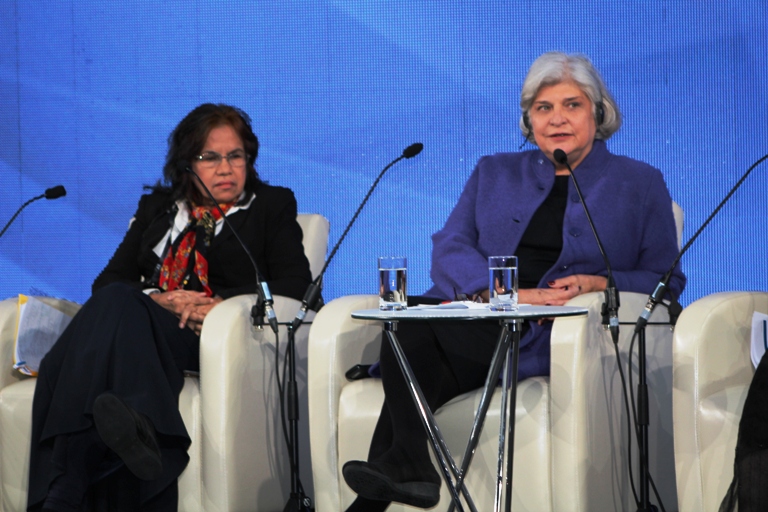
QUÉBEC CITY—Gender diversity is more than just having a predetermined number of women sit on your co-op’s board of directors. It’s a way to build a strong economy and even stronger cooperatives.
Women representing co-ops around the world underscored that message during a forum at the International Summit of Cooperatives.
“If you invest in women, the social return is much higher than the financial investment in them,” said Fatimah Mohamed Arshad, a board member at the Malaysian National Co-operative Movement.
“You will gain in gender equity, you will improve your women in terms of ownership skills and also helping them to better themselves and therefore the family,” she said.
The issue of women in co-ops is still developing. There is little question that they have made significant contributions to the cooperative movement.
Judy Ziewacz, president and CEO of the National Cooperative Business Association/CLUSA, noted women played leading roles in the development of credit unions and natural food and housing co-ops.
And they have made progress in numerical representation in the boardroom. A report from the International Cooperative and Mutual Insurance Federation said the percentage of women on the boards of mutual and cooperative insurers rose to 20.6 percent in 2015 from 17.8 percent in 2014.
Yet much remains to be done, speakers told the summit. Those board numbers fall far short of the percentage of women in the world’s population—a tick under 50 percent.
And a 2015 report by McKinsey Global Institute said advancing women’s equality could add $12 trillion to global economic growth.
Gender equity “is not happening all across the world,” Mohammed Arshad concluded.
What to do? For starters, co-op leaders say it’s possible to empower women by working with them where they are a major force in given field.
Take home care, an area in which Ziewacz has experience. Many women in the field work for low wages at for-profit enterprises, with high turnover, she noted.
“When they as caregivers formed their own cooperative in this emerging sector, worker-owned co-ops, then women become empowered over their working conditions, their advocacy for wages and their financial literacy and civic engagement.”
Marie-Claude Bibeau, the Canadian minister of international development, said women “have to be involved directly. In terms of health, education, green energy and good governance, we prioritize projects that place women and children at the core.”
Micro-cooperatives also are a way to tap the expertise of women in their traditional professions such as teaching or financial management, Mohammed Arshad added.
“Big cooperatives are good, they are powerful, they can move fast. But they sometimes can be more detached from their members,” she said. “Micro-cooperatives are very close to their members, they look like families [and are] often better for women.”